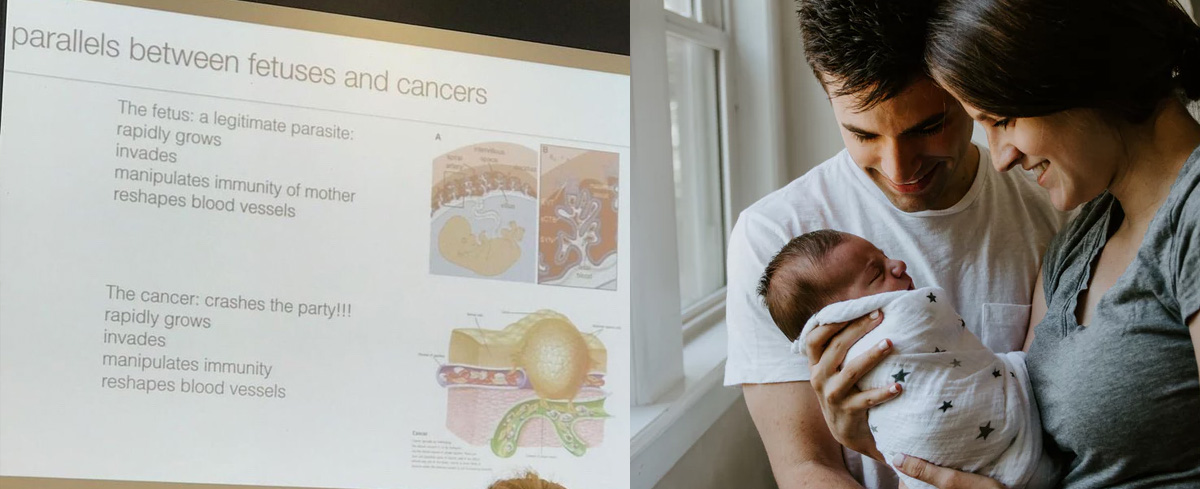A professor at the University of California, San Diego, has allegedly highlighted the parallels between fetuses and cancers during a lecture titled “Biology of Disease.”
A medical student in the class took a photo of one of the presentation slides and uploaded it to social media. The slide parallels the effects of the unborn baby on the pregnant mother’s body with the effects of cancer.
“The fetus: a legitimate parasite: rapidly grows, invades, manipulates immunity of mother, reshapes blood vessels,” the slide states. “The cancer: crashes the party!!! rapidly grows, invades, manipulates immunity, reshapes blood vessels.”
No joke, a friend just sent me this slide from her upper-level biology course.
I’m speechless. Create your own caption. pic.twitter.com/4sS6AvdRV1
— Dylan Griswold (@DylanPGriswold) April 25, 2019
Is this how medical students are now being taught to think about human life? Alan Shlemon, from Stand to Reason, rightly said, history is crowded with examples of the strong disqualifying the weak, vulnerable, and defenceless based on entirely inconsistent reasons.
There are essentially four arbitrary arguments that people appeal to in order to justify exploiting, dehumanising and outright murdering unborn babies. These arguments can be summed up by the acronym SLED: Size, Level of development, Environment, and Degree of dependency.
Shlemon explains: “African Americans were victims of discrimination. They were a class of human beings that was disqualified from being valuable based on an arbitrary characteristic: their skin color. Jews were also victims of discrimination. They were a class of human beings that was disqualified from being valuable based on an arbitrary characteristic: their ethnicity.
“Today, the unborn are victims of discrimination. They are a class of human beings that are disqualified from being valuable based on arbitrary characteristics: their size, level of development, environment, and degree of dependency.”
It was once said, you can measure any society by how it treats its most vulnerable members. If that’s true, then what does that say about the society we live in today?























